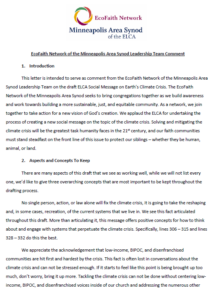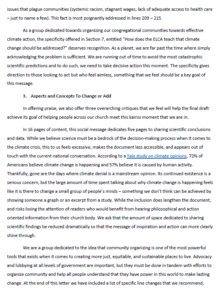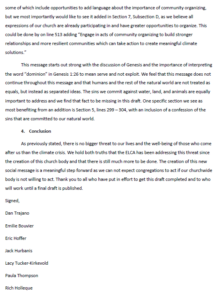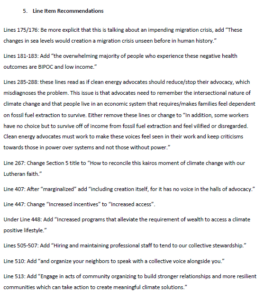 By Jack Hurbanis
By Jack Hurbanis
In June of this year, I had the opportunity to attend a weeklong training hosted by leaders on synod staff and from Street Voices for Change entitled “The World Is About to Change.” The entire week was focused on building skills to more faithfully engage in issue-based community organizing and, while I learned a lot from that week, one phrase has stuck with me on a near daily basis: Being right is not enough.
I am someone who cares a lot about being right. Fun fact: Before arriving to the synod staff, I worked as digital producer for WUWM 89.7 – Milwaukee’s NPR affiliate – where a large part of my job was to write stories that were 100% correct. I achieved that goal about 95% of the time. So, hearing that simply being right isn’t enough to make positive change in my community stung a little.
“The ELCA has recently released a draft of a new social message on the climate crisis.”
I wish it were true that being right was enough; we all do. It would make everything so much easier. There would be a right and wrong side to every issue and, whenever someone arrives at the most correct solution, we’d all agree to follow it.
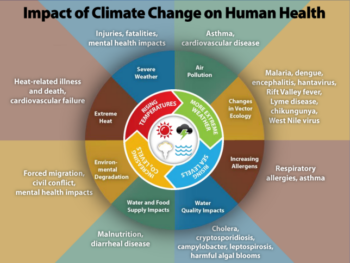
From the ELCA’s draft social statement
THERE IS NO BETTER issue that illustrates the frustration that being right is not enough than climate change. It has an objective reason for happening, scientists agree that it is the biggest threat to our planet we currently face, and there are countless pages of peer reviewed studies laying out just how we can fix this problem. Yet we struggle to implement some of the most basic solutions.
Because being right is not enough. Our communities must be organized and demanding these solutions to make real change. The great news is that organized communities can be enough.
“The great news is that organized communities can be enough.”
I am writing about this because the ELCA has recently released a draft of a new social message on the climate crisis. As I read through it, I constantly thought to myself “being right is not enough, it must be joined alongside community action.”
I am happy to report I see many great commitments and calls to action inside the draft which pair scientifically driven solutions with opportunities to act (which can be read here). Our EcoFaith Leadership Team wrote a letter outlining feedback (also below) on this draft which includes both what we see as working well and what we’d like to see changed.
While you don’t have to sit down and write your own letter, I would encourage you to read through the draft and fill out this survey that churchwide has put together to give your feedback on how you want our Church to be addressing the climate crisis.
In addition, I’d love to hear your ideas and what you’re already doing – so don’t hesitate to reach out. Because organized communities are enough to make change.
